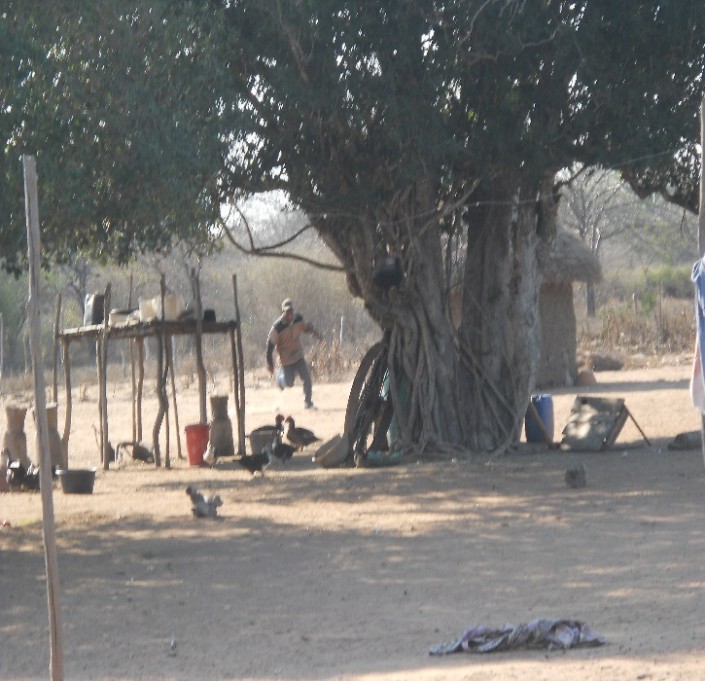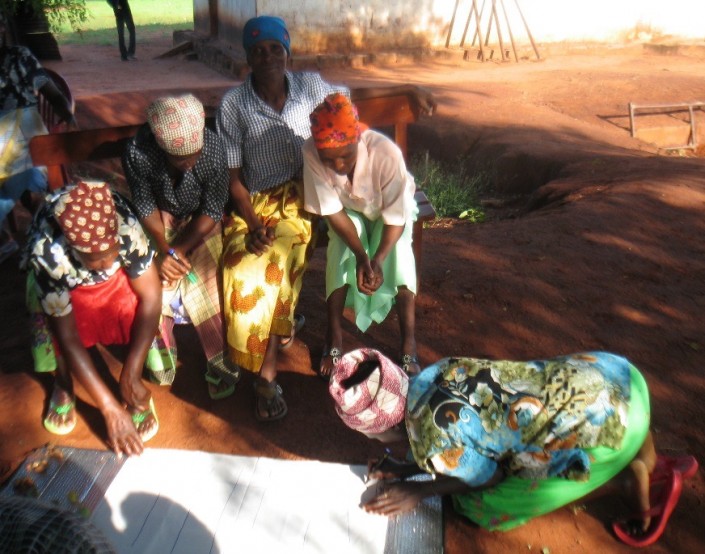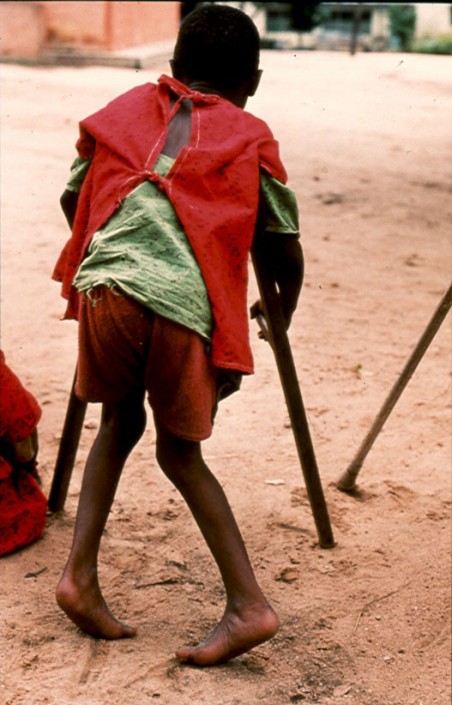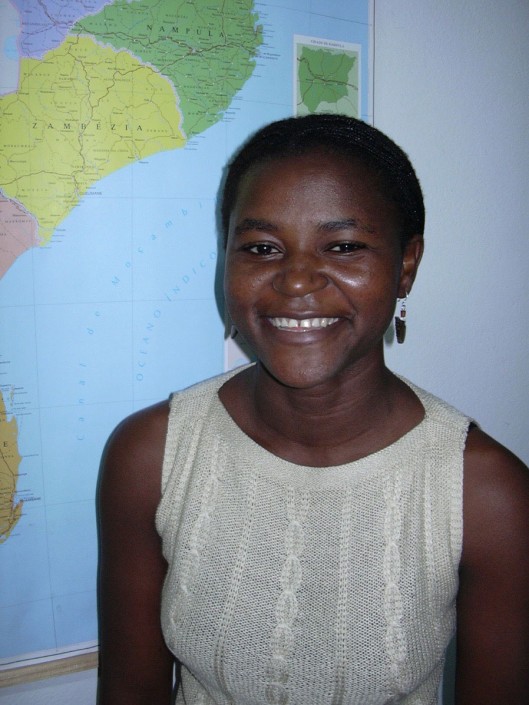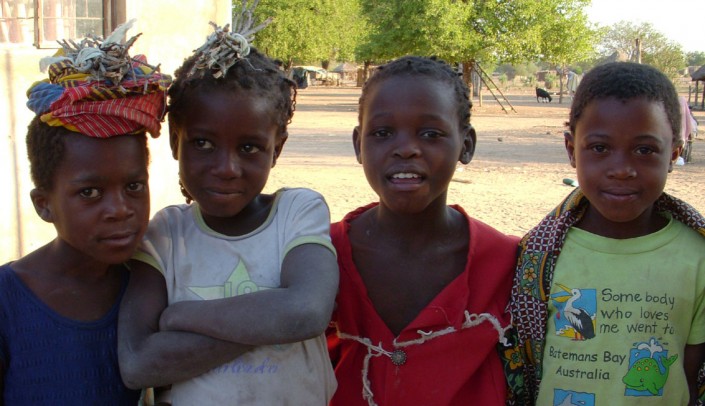Our history in Mozambique
Strengthening Livelihood Options for Vulnerable Rural Households in Gaza Province
From 2010-2012, KYEEMA received European Commission (EC) funding through Save the Children Mozambique, to provide support to the Mozambican Ministry of Agriculture’s national program for Newcastle disease (ND) control and to improve low-cost poultry husbandry practices in Gaza Province.
The aim of the 22-month project was to strengthen livelihood resilience and reduce vulnerability to food insecurity resulting from high food prices through improved access to agricultural inputs and services; and by providing a safety net for extremely vulnerable households that were suffering from hunger and at risk of acute and chronic food insecurity.
Improvement of village poultry production by communities in the Limpopo National Park
With funding from the Wildlife Conservation Society, the KYEEMA Foundation supported improvement of village poultry production by communities in the Limpopo National Park (LNP) support zone in Gaza Province, Mozambique.
Food and economic security brought about through increased poultry production will serve to decrease hunting pressure on the population of local wildlife.
The main objective of the project was to contribute to food security, poverty alleviation and wildlife conservation through the improvement of husbandry practices and disease control related to village chickens. The improvement of village poultry production by communities living inside the LNP will make a vital contribution to the long-term conservation and development success of this core Mozambican section of the Greater Limpopo Transfrontier Conservation Area.
Reduction of Cyanide in Cassava, to reduce cyanide toxicity (Konzo) in children and women of child-bearing age
This project followed on from excellent research work undertaken by Dr Bradbury at the Australian National University (ANU). Initial research work established a reliable and cheap test for cyanide levels in cassava, so that cassava toxicity could be detected early in drought years and measures taken to stop cases of konzo.
Development of this test was achieved, but the next step was to test the use of very simple preparatory techniques for cassava before cooking, to reduce cyanide levels by two thirds of their levels in cassava flour. This project enabled more testing of this process both in the laboratory and in the field in Mozambique during the cassava harvest season. The study confirmed that the simple wetting method produce an acceptable product after cooking and the methodology used is acceptable to the women and easily accommodated in their daily schedule of work. It is hoped that this project has helped reduce the cyanide intake of the cassava flour eating population of Mozambique to limit the occurrence of konzo and perhaps virtually eliminate it altogether.
Student Support
As one of its first activities, the KYEEMA Foundation funded study for Matilde E. J. Nacuvaneque, a Mozambican woman from Nampula Province in the North, who achieved very good results at school, but had no way possible to ever be able to attend University without assistance.
Matilde has learnt skills that will help to promote Mozambique as a tourist destination, and hopefully in the future this will create more job opportunities for Mozambicans.
Firstly I hope you are well and happy each day. Permit me, with respect, to thank you for the great assistance you have provided for my professional training in the area of tourism, in the acquisition of knowledge, contributing thus in an intellectual manner to the development of my country.
I would like to ask you all to visit me whenever possible, and I send a hug the size of the world to you all, your families and friends.
Improvement of village chicken production in Manica, Sofala, Maputo, Gaza and Inhambane provinces
Over the period 2005-2009, the Food and Agriculture Organisation (FAO) provided a series of small grants to undertake ND control and basic poultry improvement activities in selected villages across five provinces.
In January 2005 FAO provided funding to pilot improved management of village chickens and vaccination against ND of the chicken flocks of people living with HIV and AIDS in selected areas of Manica and Sofala Provinces. This project helped mitigate the effects of HIV and AIDS on food security and nutrition. KYEEMA worked within the framework of Home Based Care systems run by the local NGOs ASVIMO and Kubatsirana, who undertook feeding programs and other food security programs for selected communities in these Provinces. The expansion phase of this activity continued through to 2009.
Improvement of village chicken production in Chibuto
In January 2005 KYEEMA was invited by Corridor Sands Limited (a BHP subsidiary mining company in Mozambique) to facilitate the community-based management of Newcastle disease (ND) and other poultry husbandry practices.
CSL was establishing a mine in the Chibuto district of Mozambique and as part of the mine establishment; several communities will be affected by the operations. CSL was committed to ensuring these communities will be better off as a result of the mining activities, and funded priority community development activities, such as village chicken production, to help communities to build a better future. KYEEMA was contracted to produce and implement an education program, comprising both extension materials and methodologies, for defined target groups in Chibuto on the management of Newcastle disease. The education program focused on the effective use of a) vaccines for control of ND and b) low-cost poultry husbandry practices. It was developed as a tool for local veterinarians, livestock officers, extension supervisors and extension workers, CSL extension staff, farmers and students at local primary and high schools.
Improvement of food security and mitigation of HIV and AIDS by promoting village chicken production in Mozambique
Village chickens play an important role in households where there is a lack of able-bodied workers, such as households affected by HIV and AIDS or those that have a disabled family member.
In households headed by widows, children or grandparents, chickens represent the easiest species to raise for sale and home consumption, and provide a source of high quality protein and micronutrients which play an important role in the nutrition of HIV and AIDS patients. Chickens can make a significant contribution to poverty alleviation and household food security.
Kubatsirana is a Mozambican NGO that offers access to treatment, pastoral care, general support for people living with HIV, as well as youth prevention HIV programs. In the local dialect, Kubatsirana means ‘helping each other’ and the association employs holistic approaches to reduce the spread of HIV and AIDS among vulnerable populations including children, youth and women.
In 2014 KYEEMA Foundation worked with Kubatsirana to assist vulnerable households in a rural community of Manica province, Mozambique. Through the promotion of village chicken production, activities contributed to improved nutrition and health and provide an alternative source of income for the most disadvantaged families.
Thirty one households were selected and trained in low cost methods of keeping chickens, with an emphasis on disease control and improved feeding. Twenty-seven women and four men from the selected households and two livestock technicians participated in the training.
Each household received a small foundation flock of one rooster and two hens, purchased from the local market and one year’s free vaccination against Newcastle disease (three campaigns per year).
This activity followed on from previous work with Kubatsirana and another local NGO, ASVIMO, from 2005-7, where 98 vulnerable households received three hens and a rooster and one year’s free vaccination.

